Akanda (Calotropis gigantea), commonly known as the crown flower, is a plant native to the Indian subcontinent, Southeast Asia, and parts of Africa. It has a long history of use in traditional medicine due to its various therapeutic properties. The leaves of the Akanda plant are particularly noted for their wide range of health benefits. In this article, we explore the medicinal benefits of Akanda leaves, highlighting their potential to support human health.
Anti-inflammatory Properties
One of the most prominent benefits of Akanda leaves is their potent anti-inflammatory effects. Inflammation is the body's natural response to injury or infection, but chronic inflammation is associated with many diseases, including arthritis, cardiovascular issues, and autoimmune disorders. Studies have shown that the bioactive compounds in Akanda leaves, such as flavonoids and alkaloids, possess strong anti-inflammatory effects. When applied topically or consumed, these compounds help reduce swelling, redness, and pain associated with inflammation. This makes Akanda leaves particularly useful in treating conditions like arthritis, muscle pain, and joint inflammation.
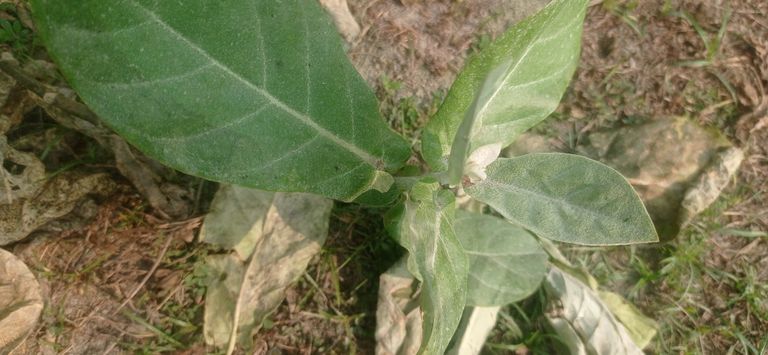
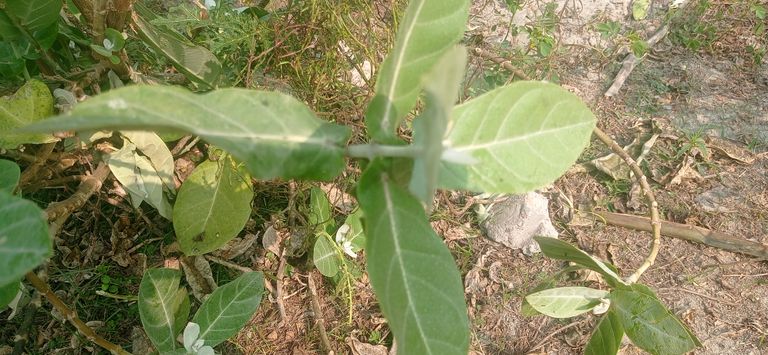
Pain Relief
Akanda leaves are well-known for their analgesic (pain-relieving) properties. In many traditional healing practices, the leaves are used to treat various forms of pain, such as headaches, menstrual cramps, and even more severe pain from injuries or infections. The analgesic effect is attributed to the presence of compounds that inhibit pain-inducing pathways in the nervous system. Applying crushed Akanda leaves topically to the affected area can help relieve muscle pain, while consuming the leaves in medicinal preparations may provide internal relief.
Antioxidant Benefits
Oxidative stress, caused by an imbalance between free radicals and antioxidants in the body, is a major contributor to aging and many chronic diseases. Akanda leaves contain several antioxidants, including flavonoids, tannins, and phenolic compounds, which help neutralize free radicals. By reducing oxidative stress, these compounds protect cells from damage, thereby slowing the aging process and reducing the risk of developing diseases like cancer, diabetes, and cardiovascular disease. Consuming Akanda leaves in various forms or using them topically can promote overall health by enhancing the body's antioxidant defense mechanisms.
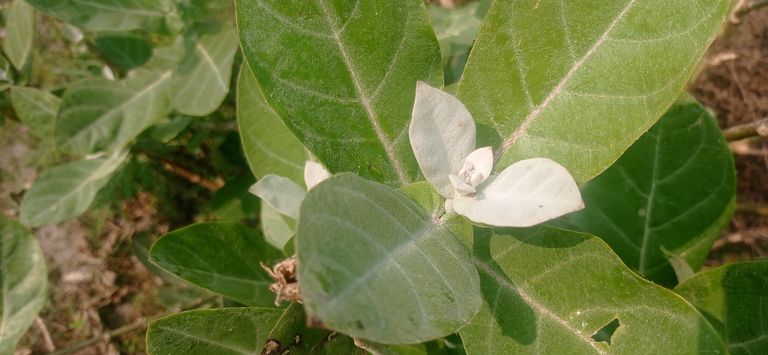
Wound Healing and Skin Care
Akanda leaves have long been used in folk medicine for treating wounds, cuts, and ulcers. The leaves possess antimicrobial, anti-inflammatory, and analgesic properties that promote faster healing of wounds. The compounds in Akanda leaves prevent infection and reduce inflammation at the wound site, accelerating the body’s natural healing process. Additionally, these leaves help in reducing scars and improving the skin's appearance. For this reason, Akanda leaves are often used in traditional skincare treatments to improve skin texture, reduce pimples, and treat conditions like eczema and psoriasis.
Antibacterial and Antifungal Activity
Akanda leaves exhibit notable antibacterial and antifungal properties, making them effective in treating various infections. The compounds present in the leaves inhibit the growth of harmful bacteria and fungi, making the plant useful for treating skin infections, respiratory conditions, and digestive issues caused by harmful microbes. The leaves are particularly effective against bacteria such as Staphylococcus aureus and Escherichia coli, which are common culprits in wound infections, skin diseases, and gastrointestinal disturbances. Using Akanda leaves in medicinal preparations or applying them to infected areas can help speed up recovery and prevent further complications.
![IMG_20241214_123355.jpg]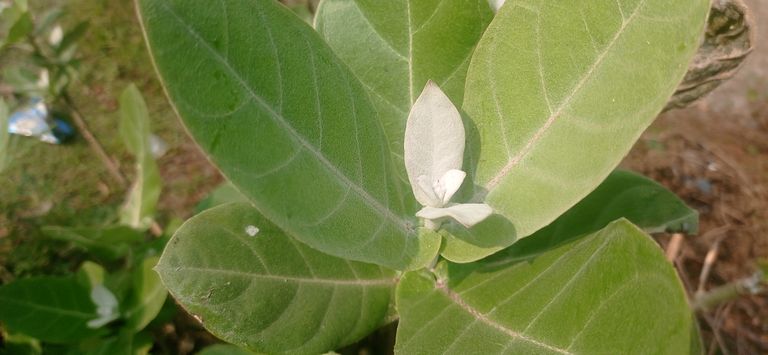 )
)
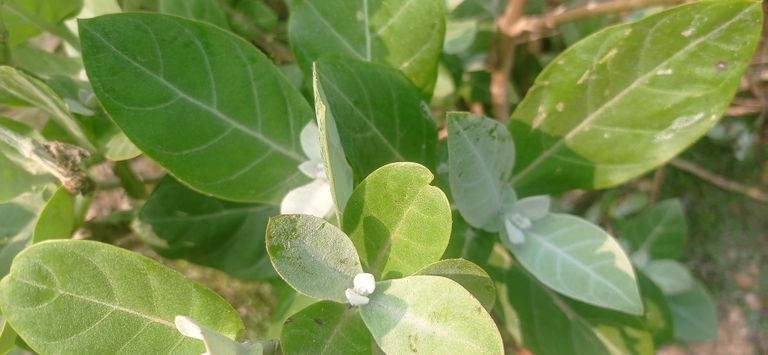
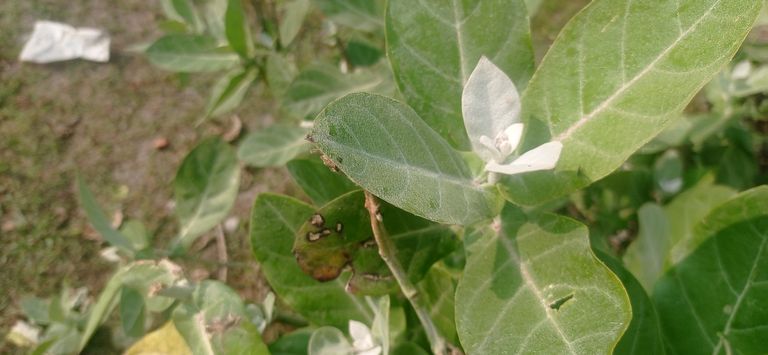
Respiratory Health
The use of Akanda leaves in respiratory health is well-documented in traditional medicine. The leaves are known to possess expectorant properties, which help in loosening and clearing mucus from the respiratory tract. This makes them beneficial for treating conditions like asthma, bronchitis, coughs, and the common cold. The leaves can be used to make herbal teas, or their juice can be consumed to relieve symptoms such as wheezing, shortness of breath, and chest tightness. Furthermore, Akanda leaves have mild sedative effects that can help calm the respiratory system and reduce coughing fits, especially at night.
Digestive Health
Akanda leaves also play a role in promoting digestive health. They help in stimulating digestion and alleviating various digestive issues such as bloating, indigestion, and constipation. The leaves have mild laxative properties, which can help regulate bowel movements and relieve constipation. Additionally, Akanda leaves are believed to support the liver in detoxifying the body, which further enhances overall digestive health. Some traditional medicine systems use Akanda leaves to treat gastric ulcers and other stomach ailments, as the plant’s compounds help soothe the stomach lining and reduce inflammation.

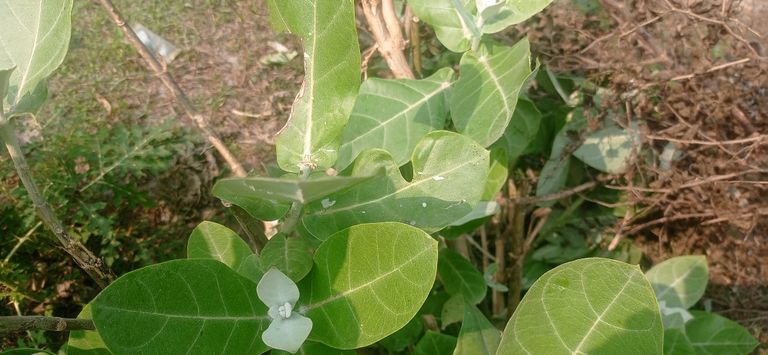
Anti-diabetic Effects
Emerging research suggests that Akanda leaves may have a role in managing blood sugar levels, making them beneficial for individuals with diabetes. The bioactive compounds in Akanda leaves are thought to improve insulin sensitivity and reduce blood glucose levels. In traditional medicine, the leaves are used to treat symptoms of diabetes, including excessive thirst, frequent urination, and fatigue. Regular consumption of Akanda leaf extracts may help maintain stable blood sugar levels, reducing the risk of complications associated with diabetes, such as neuropathy and kidney damage.
Detoxification and Liver Support
The liver plays a crucial role in detoxifying the body, and Akanda leaves are thought to support liver function. The compounds in the leaves help enhance liver enzyme activity, which in turn aids in the detoxification process. Consuming Akanda leaves may help the body eliminate harmful toxins and waste products more efficiently, reducing the burden on the liver. As a result, Akanda leaves are used in many traditional detoxification practices to cleanse the body and promote overall health.
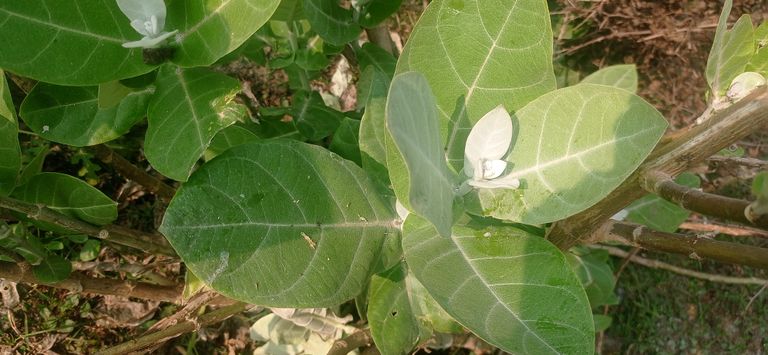
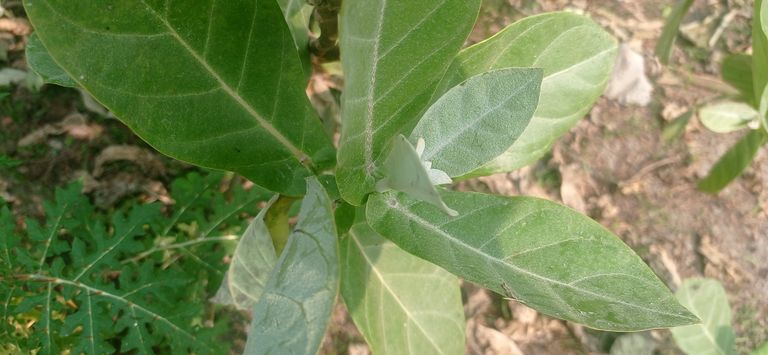
Cardiovascular Health
Akanda leaves are believed to support heart health by improving circulation and reducing the risk of cardiovascular diseases. The anti-inflammatory and antioxidant properties of the leaves help protect the heart and blood vessels from damage caused by oxidative stress and inflammation. Additionally, Akanda leaves may help lower blood pressure and cholesterol levels, further reducing the risk of heart disease and stroke. Some studies suggest that regular use of Akanda leaf extracts can lead to improved circulation, reduced arterial stiffness, and a lower incidence of heart-related conditions.
Anti-cancer Potential
Several studies have explored the anti-cancer properties of Akanda leaves. The plant contains compounds that exhibit cytotoxic effects on cancer cells, particularly in the case of breast, colon, and liver cancer. The bioactive molecules in Akanda leaves help induce apoptosis (programmed cell death) in cancer cells, thus preventing the growth and spread of tumors. While more research is needed to fully understand the potential of Akanda leaves in cancer treatment, the plant’s antioxidant and anti-inflammatory properties make it a promising candidate for cancer prevention and adjunctive therapy.
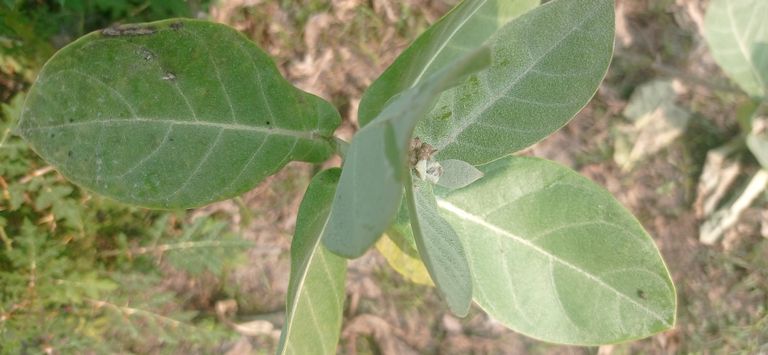
Mental Health and Stress Relief
Traditional healing systems also use Akanda leaves for their calming effects on the nervous system. The leaves contain compounds that can help reduce stress, anxiety, and symptoms of depression. The mild sedative effects of the leaves promote relaxation and better sleep quality. Regular consumption or topical use of Akanda leaves may help in alleviating symptoms of mental fatigue, anxiety, and restlessness. The calming effects make Akanda leaves useful in treating insomnia and promoting overall mental well-being.
Conclusion
Akanda leaves, with their vast array of medicinal properties, offer significant health benefits. From treating inflammation and pain to promoting digestive and respiratory health, these leaves are a powerful natural remedy. Their antibacterial, antifungal, and antioxidant properties make them valuable in preventing infections, improving skin health, and protecting against oxidative damage. Akanda leaves also play a role in supporting liver function, managing blood sugar levels, and improving heart health.
While Akanda leaves are a promising herbal remedy, they should be used with caution, especially by individuals with underlying health conditions or those taking medication. As with any medicinal plant, it is important to consult with a healthcare professional before using Akanda leaves for therapeutic purposes. Nonetheless, the numerous benefits of Akanda leaves make them an essential part of traditional medicine, and further research will likely reveal even more of their healing potential.
So far Today...
Stay Home
Thanks for Your Time Friend.
♥♥♥♥♥♥
Ok
See you Again in a New blog.
Thanks for being with me.
Plese Follow Me......
@mspbro
★★To contact me★★
Subscribe My 3speak Channel https://3speak.online/user/mspbro
Follow me Twitter https://twitter.com/mdsumonpra
Add me Facebook https://www.facebook.com/sumon.mim84